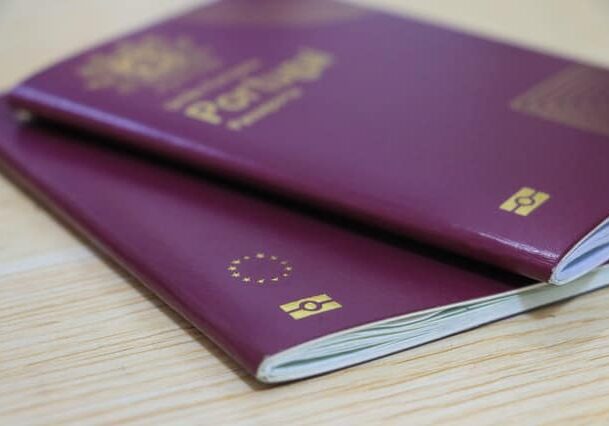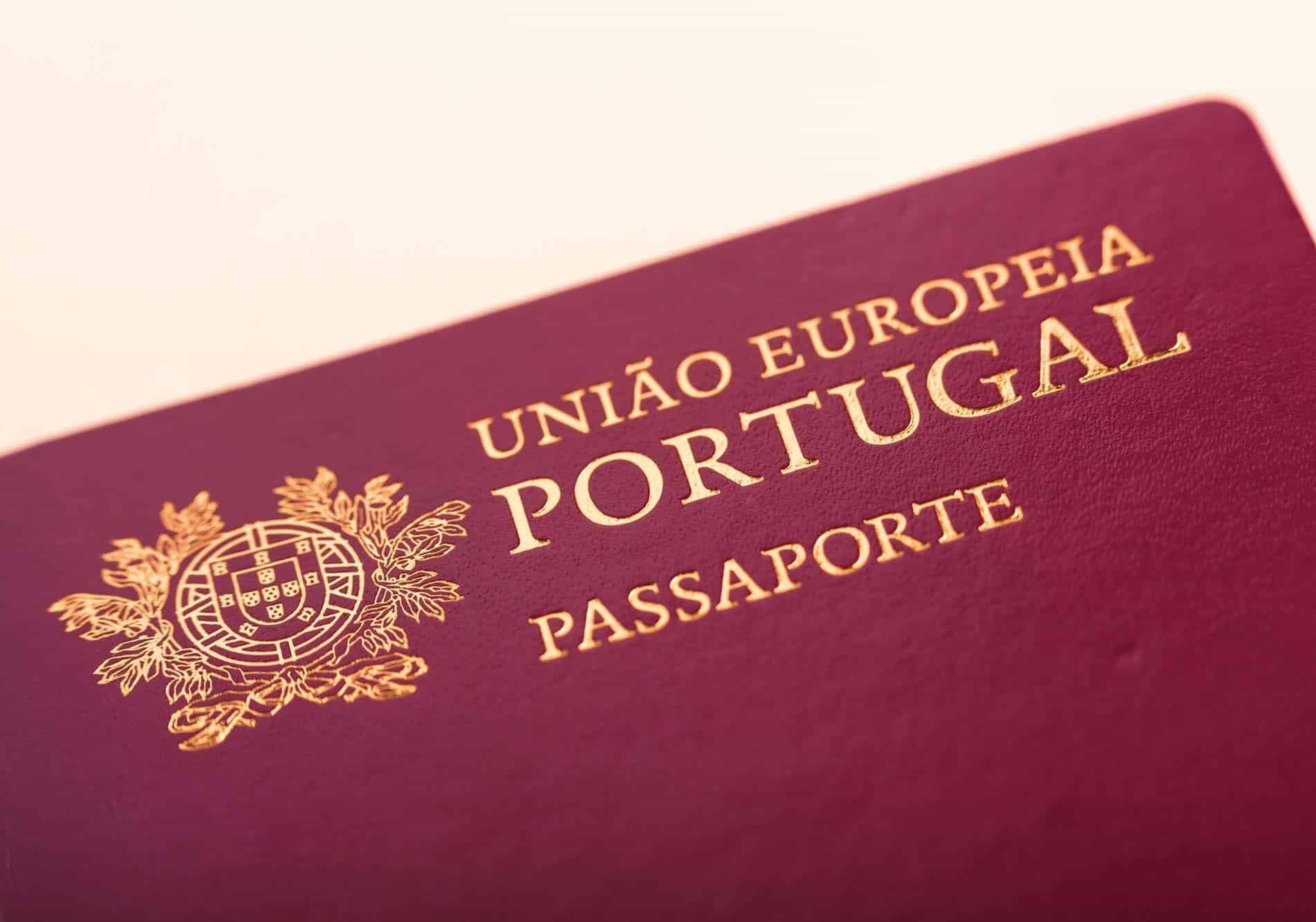In a globalized world, many individuals seek to expand their horizons by obtaining citizenship in a foreign country. One coveted destination is Portugal, known for its rich history, beautiful landscapes, warm climate, and high quality of life.
Holding citizenship in Portugal opens the door to numerous benefits as a member of a European Union country (EU). As a Portuguese citizen, you can enjoy several benefits, including being part of the Portuguese community and having the freedom to live, work, study, and travel freely throughout the EU.
But what is required for obtaining Portuguese citizenship? Whether you’re interested in gaining citizenship by investment, through marriage, or descent, this comprehensive guide covers all you need to know about the process, requirements, and benefits of acquiring Portuguese citizenship.
An Overview of Portuguese Citizenship
Whether employed with a Portuguese company, looking to retire, or considering citizenship by investment, becoming a Portuguese citizen is a life goal for many individuals worldwide.
Portugal is one of the easiest European countries to apply for citizenship through its many long-term visa programs, such as the D3 or the Portugal Golden Visa. While capital transfer or real estate investment is no longer an option for the Golden Visa, several options are still available.
If you’re looking to start your journey to citizenship in Portugal, the basic criteria that you should know is:
- The primary applicant must be at least 18 years old
- You must have a legal route to applying for citizenship, such as living in Portugal—as a worker or retiree—for at least five years on a visa or producing your parents’ or grandparents’ birth certificates
- You should be eligible for dual citizenship from your home country
The Top Benefits of Portugal Citizenship
Becoming a Portuguese citizen and joining the Portuguese community has several benefits:
Visa-free travel and EU perks
One of the most significant benefits is the right to travel visa-free or have visa-on-arrival access to 188 destinations worldwide.
Portugal is a European Union Country. This means that Portuguese citizens are also citizens of the EU. Therefore, you can freely travel in any EU or European Economic Area (EEA) country without requiring additional permits or visas.
See: Portugal Passport Visa-Free Countries
Right to live and work in the EU
Portuguese citizenship grants the right to settle and work in a beautiful, economically stable country.
Access to Portugal’s quality healthcare and schooling
You can access Portugal’s acclaimed social security system by becoming a Portuguese citizen. Portugal is known for its robust healthcare system and quality education, and as a Portuguese citizen, you also enjoy these privileges.
Portuguese nationals can also access free education in some of the world’s premier institutions and take advantage of government-sponsored healthcare programs.
High quality of life and a low cost of living
Portugal offers a high quality of life thanks to its pleasant climate, safe environment, rich cuisine, and cultural heritage. Besides, Portugal has a relatively lower cost of living than other EU countries, making it an affordable choice for many. This is also one of the main driving factors for the US and UK citizens’ moving to Portugal.
Employment opportunities
A Portuguese passport is your permanent identity for citizenship in Portugal for life. It grants you full-time or part-time employment opportunities without needing any additional work permit.
Portugal passport “power”
Portuguese citizens enjoy extensive global access. A Portuguese passport is a valuable travel document with visa-free entry to 174 countries. According to the Global Passport Index curated by Global Citizen Solutions, Portugal holds the 31st spot overall. Diving deeper into the index, it’s noteworthy that the Portuguese passport secures the 12th position in the Enhanced Mobility Index and ranks 13th in the Quality of Life Index.
Portugal Citizenship Requirements
As a legal resident, your citizenship application should include the following documents:
- Clean criminal record certified by the Agency for Integration, Migration, and Asylum (AIMA), which is the organization that replaced SEF
- A clean health record
- Proof of your Portuguese residency.
- Evidence of your fluency in the Portuguese language –
The language fluency requirement for Portuguese citizenship involves passing the CIPLE exam. This Portuguese language test examines the applicants’ ability to understand and use everyday Portuguese expressions and requires them to write and speak Portuguese to A2 level.
You do not need to take a Portuguese language test if you are a foreign national from a Portuguese-speaking country like Brazil, Angola, or Mozambique.
How To Get Portuguese Citizenship: The Main Routes
There are various routes to acquiring Portuguese citizenship; below, you’ll find the main routes:
Portuguese citizenship through marriage
After being married to or in a non-marital relationship with a Portuguese citizen for three years, you can apply for Portuguese citizenship. You must provide documents proving your relationship (e.g., a marriage certificate) and union with the Portuguese community. There is no minimum residency requirement for this route. Your Portuguese citizenship application remains valid even if you divorce or separate in the future.
Portuguese citizenship by descent
You can get Portuguese citizenship by descent if you have Portuguese parents or at least one Portuguese parent. Portuguese Nationality Law recognizes nationality through jus sanguinis (derived from Portuguese ancestors) or territorial (if the child was born in Portuguese territory).
Obtaining Portuguese citizenship through this route, you must have your parent’s birth certificate stating where they were born in Portugal.
The Portuguese Government also allows you to apply for Portuguese citizenship by descent if you have at least one Portuguese grandparent and can produce their birth certificate.
Citizenship by investment
As of October 2023, real estate can no longer be used as an investment. However, the Portugal Golden Visa citizenship by investment program provides pathways to fulfill your Portuguese citizenship application. This visa scheme speeds up the process for foreigners and non-EU/EEA citizens to obtain a residence permit in Portugal. Golden Visa holders are granted a temporary residence permit in exchange for making a qualified investment. Golden Visa holders can apply for citizenship or permanent residence after five years of maintaining the temporary permit and their investment.
Other visas like D3, D7, and D8 follow a similar process but do not require an investment.
You can find out more details about investments in this article.
Portuguese citizenship for Sephardic Jews and residents of former Portuguese territories
Individuals of Sephardic Jewish heritage, whose ancestors were expelled from the Iberian Peninsula during the Inquisition era, can claim Portuguese citizenship.
To be eligible, you’ll need to trace your family tree far enough to show that you have Sephardic Jewish ancestry, using documents such as marriage, death, and/or birth certificate. There are other evidences you can use to prove your Portuguese-Jewish ancestry. To learn more, please read our article: Portuguese Citizenship for Sephardic Jews.
Individuals who can produce a birth certificate from Portugal (i.e., birth naturalization) and currently reside in territories that were once under Portuguese rule are eligible to retain their Portuguese citizenship. Similarly, individuals born in former Portuguese colonies who have been long-term residents of Portugal are also allowed to maintain their citizenship status. You must present your birth certificate to obtain Portuguese citizenship through this route.
Portugal citizenship: the naturalization route
Foreign nationals may become citizens by naturalization after living in Portugal for more than five years and showing proficiency in Portuguese.
One exception to this rule is if you are married to or in a de facto union with a Portuguese citizen. In that case, you can apply for Portuguese citizenship without fulfilling the five-year residency requirement. You’ll also need to provide a birth certificate for both parties. The naturalization route begins with a temporary or permanent residence permit.
Temporary and permanent residence permits
A temporary residence permit is valid for one year and renewable for successive periods of two years. After five years, if you hold a temporary permit but wish to continue your stay in Portugal, you can apply for a permanent residence permit. The years spent on your temporary residence permit count towards your five-year residency, provided that you’ve adhered to the guidelines.
Permanent residence permit holders are eligible for citizenship after meeting the requirements and living in Portugal for five years.
Naturalization Through the Five-Year Residency Requirement
Let’s explore the visa and permit types you may use to fulfill the requirements for citizenship in Portugal through naturalization.
Portugal Golden Visa Program
Portugal is one of several European countries that offers citizenship by investment permits to those who invest in Portugal.
Portugal’s Golden Visa Program offers non-EU nationals the opportunity to invest in Portugal and, in return, receive a fast-tracked Portuguese residence permit. This permit allows holders and their families to live, work, study in Portugal, and freely travel within the Schengen Area. After five years of residency, Golden Visa holders can apply for permanent residency and obtain Portuguese citizenship.
The Portuguese Golden Visa program has recently undergone substantial changes. The new legislation is now in effect, and it’s crucial to note that any real estate investment or capital transfer option no longer qualifies for the program.
However, there are still several attractive citizenship-by-investment routes available, such as investment funds and artistic donations, that remain eligible for the program. They are as follows:
- Fund Subscription: Contribute to a qualified investment fund worth at least €500,000
- Investment or donation in the arts or reconstruction of national heritage with a donation of at least €250,000 (Read more: Portugal’s Cultural Production Golden Visa)
- Scientific Research: Science or Technology research contribution of at least €500,000
- Creation of ten jobs: Creation and maintenance of ten jobs during the required period
- Share capital and job creation: Incorporation of a company or reinforcement of a company’s share capital, in either case with an investment of €500,000, combined with the creation of five or maintaining ten jobs (5 of them permanent)
Eligibility criteria for the Portuguese Golden Visa
For consideration in the Portugal Golden Visa program, applicants need to meet the following criteria:
- Have a clean criminal record
- Be either non-EU, non-Swiss, or non-EEA national
- Make a minimum investment of €250,000 in one of the designated programs
- Spend an average of 7 days per year in Portugal, guaranteeing a total of 14 days within the first two years.
When applying for the Portuguese Golden Visa, appropriate documentation must be presented. This involves legalizing and translating documents and paying corresponding fees.
The required documents for the citizenship by investment or Golden Visa include the following:
- A completed Portuguese Golden Visa application form.
- Valid passport and travel documents.
- Health insurance validity in Portugal.
- A certificate of clean criminal record or a police clearance letter from the applicant’s home country
- A completed form allowing the Agency for Integration, Migration, and Asylum (AIMA), which replaced SEF, to obtain a copy of your Portuguese criminal records.
- A declaration stating that the investment requirements have been met.
- Documents confirming good standing with the Portuguese Tax and Customs Authority and Social Security system, issued within 45 days before the online application.
- Proof of payment for your application processing fee.
The criminal record certificate or police clearance letters should be issued no more than 90 days before the application submission, while all other certificates should be issued no more than 180 days before your application.
Bank Account and NIF Number: Golden Visa applicants must also acquire an NIF (Tax Identification Number) and open a Portuguese bank account. The NIF number is essential for any financial transactions in Portugal, such as renting a home, employment, and contract signing.

Other Portuguese Visas
Portugal is known for being one of the easiest countries to acquire citizenship. Several long-term visa options are available, each of which can eventually lead to citizenship, provided the relevant criteria are met when applying. Alternative visa options for working or retiring in Portugal include:
D3 Visa
If you’re a non-EU national with specific tertiary qualifications or extensive experience in a particular field of high-level work, you may qualify for the D3 Visa.
The D3 Visa program aims to attract experienced individuals to Portuguese companies in exchange for residency in Portugal. The requirements for this visa include having an employment contract with a Portuguese company and producing relevant qualifications that meet specific standards in line with the position.
Similarly, the D3 Tech Visa is also available. In addition to the D3 requirements, a prerequisite for the Tech Visa is that the designated Portuguese company you’re applying to must be registered with the IAPMEI to fast-track their applicants.
As a priority visa, qualified applicants can receive their visa as quickly as 30 days after applying—provided that applicants meet the requirements. After five years of residing in Portugal with a D3 or Tech Visa, you can apply for citizenship.
D7 Visa
Non-EU citizens looking to retire in sunny Portugal should consider the D7 Visa.
The D7 Visa, or the Passive Income Visa or Retirement Visa, is for individuals who can demonstrate regular income from pensions, rental income, financial investments, or other sources. After five years, the visa provides a pathway to permanent residency and Portuguese citizenship.
You can find more information from Global Citizen Solutions for your D7 Portugal application article.
D8 Digital Nomad Visa
Working remotely offers significantly more freedom than regular office jobs, allowing you the opportunity to work from anywhere. Foreign nationals outside the EU who are remote workers or freelancers can opt for the D8 Visa.
This visa is designed for those who want to live and work in Portugal independently. A prerequisite for D8 applicants is to prove that they earn four times the national minimum wage from their freelance work. D8 Visa holders who stay in Portugal for five years or more can apply for permanent residency or citizenship.
Dual Citizenship in Portugal
Portugal law permits dual citizenship, meaning you can become a Portuguese citizen without renouncing your original citizenship. However, verifying if your home country permits multiple citizenships is important, as not all countries allow it.
Portuguese citizenship eligibility
To be eligible for Portuguese citizenship, you must have lived in Portugal for at least five years as a legal resident or have been married or in a non-marital partnership with a Portuguese national for over three years. Furthermore, you must maintain a clean criminal record, present evidence of your Portuguese residency, and show proficiency by taking a Portuguese CIPLE language test.
What is the Portuguese CIPLE language test?
The CIPLE Portuguese proficiency test is a Portuguese language exam for those who want to become Portuguese citizens. This requirement only applies to people who do not have Portuguese as their home country language. The objective of the test is to ensure that new citizens have a sufficient understanding of the language before being awarded citizenship.
Some individuals are not required to take the test. They are:
- Individuals who are eligible for citizenship through marriage
- Applicants from countries with Portuguese as their home language (for example, Brazil, Angola, or Mozambique).
- Portugal Golden Visa applicants
How to Apply for Portuguese Citizenship: A Step-by-Step Guide
Portuguese citizenship application process:
If you want to get Portuguese citizenship, there are a few steps you’ll need to take.
- Fill out the application form
- Submit all the necessary documents with the application fees
- Send your application along with all supporting documentation to the Portuguese Consulate (if you’re applying from your home country) or the Registry Office (if you’re applying from Portugal) for processing
Once you submit your application form, it’s processed by the Registry Office, which will decide whether or not they believe you qualify for citizenship.
Following Portuguese government law, if you’re not eligible for citizenship, the Registry Office will inform you and explain why.
If you are eligible, the Registry Office will send you an official letter of congratulations to inform you that your application has been approved.
How do I get a Portuguese passport?
To get a Portuguese passport, you must go through certain processes. In most cases, it begins with either being born to a Portuguese parent or through residency or marriage to obtain Portuguese nationality.
Ancestry: If one or both of your parents or grandparents are Portuguese, you are eligible for Portuguese citizenship and a passport. If you are of Sephardic Jewish ancestry, you may also be eligible for Portuguese citizenship, as Portugal offers citizenship to descendants of Sephardic Jews expelled during the Inquisition.
- Birth: Portugal amended its Birthright Citizenship to include people born in the country to non-Portuguese parents. If their parents have legally resided in Portugal for at least five years, they qualify for Portuguese citizenship.
- Marriage: If you’re married to a Portuguese citizen for at least three years, you can apply for citizenship. Note that you might have to prove sufficient knowledge of the Portuguese language.
- Residency: If you’ve legally resided in Portugal for five years, you can apply for citizenship. You also need to demonstrate sufficient knowledge of the Portuguese language.
After acquiring citizenship, you’re eligible to get a Portuguese passport. To do this:
- Visit a local citizen’s shop (“Loja do Cidadão“) or a registry office (“Conservatória do Registo Civil“) in Portugal. If you’re abroad, visit the nearest Portuguese embassy or Portuguese consulate.
- Provide all necessary documentation, including a valid identification document (like your citizen’s card or identity card), two recent, identical color photographs, and a valid Portuguese citizen card or an expired Portuguese passport.
- Pay the application fee.
- Your application will be processed, and if approved, your passport should be issued in a few days (in Portugal) or a few weeks (abroad).
Remember, the law stipulates that dual citizens must enter and leave the country using Portuguese passports.
Working with an Immigration Lawyer for your Portugal Citizenship
Hiring a knowledgeable Portuguese immigration lawyer when pursuing Portuguese citizenship has several benefits, including making the process easier.
Immigration lawyers are well-versed in the complexities of immigration and citizenship laws. They’re experienced in navigating legal processes and ensuring that your application is complete and complies with all requirements.
They can also assess your eligibility, offer advice on the best path to citizenship, and help you overcome potential hurdles.
Also, citizenship applications often require extensive documentation. Portuguese immigration lawyers can help you gather and prepare the necessary paperwork, reducing the chances of errors or omissions.
Why choose Global Citizen Solutions for your Immigration Visa?
GLOBAL APPROACH BY LOCAL EXPERTS
- GCS has offices located across Portugal.
- Members of the US-Portugal and UK-Portugal Chambers of Commerce in Portugal, and the Investment Migration Council (IMC).
- Our expert team can help you throughout your journey to secure your Visa.
100% APPROVAL RATE
- Our successful track record in applications provides reassurance to applicants.
- We have helped clients from more than 35 countries secure residency in Portugal.
ALL-ENCOMPASSING SOLUTION
- With a single channel of communication, our approach ensures that you have complete clarity on your application.
- Our BeGlobal® Onboarding System allows for a total flow of information.
TRANSPARENCY AND PRIVACY
- Our pricing is clear and detailed, you will not face any hidden costs.
- All data is stored within a GDPR-compliant database on a secure SSL-encrypted server.
Frequently Asked Questions About Portuguese Citizenship
Can a US citizen get citizenship in Portugal?
Yes, a US citizen can acquire Portuguese citizenship. The most common routes include five years of legal residence after securing a visa, being married to a Portuguese citizen, investing in Portugal under the Golden Visa Program, or having Portuguese ancestry.
Does Portugal give citizenship easily?
The process to obtain Portuguese nationality involves fulfilling certain requirements and going through legal procedures, which can be complex and time-consuming. However, compared to many countries, Portugal has several pathways to obtain citizenship, including through ancestry, having a Portuguese parent, marriage, investment – excluding real estate – or after five years of legal residency.
How do I get dual Portuguese citizenship?
To obtain dual Portuguese citizenship, you first need to qualify for Portuguese nationality through one of the available routes like legal residency in Portugal for at least five years, marriage to a person with Portuguese nationality, Portuguese descent, or significant investment (Golden Visa Program).
Once you have met the requirements and your application for Portuguese citizenship is approved, you can hold a second citizenship, assuming your current country of citizenship allows dual nationality. You should always check the rules of your current country of citizenship before proceeding.
Can a US citizen have dual citizenship with Portugal?
Indeed, a US citizen can indeed obtain Portuguese citizenship. This is because both nations recognize and allow second citizenship, permitting individuals to hold two valid passports and enjoy the rights and benefits accorded to citizens in each country.
The process for obtaining Portuguese nationality, and thus second citizenship, varies depending on your situation. It could be through descent, marriage, birth, or after legally residing in Portugal for a period of six years, including one year with a permanent valid residence permit.
However, there are responsibilities tied to holding dual citizenship in Portugal. You must comply with both US and Portuguese law as well as the regulations of both countries, which includes tax obligations. US citizens, regardless of citizenship status, must file annual US income tax returns. And while in Portugal, dual citizens are generally subject to Portuguese taxation.
Lastly, it’s important to remember that, as a dual citizen, when in either country, you’re generally treated as a citizen of that specific country. This means that your rights and protections as a citizen of the other country may be limited. For example, the US Embassy may not intervene in legal matters if you’re in Portugal.
In summary, while dual citizenship with the US and Portugal provides numerous benefits, it’s also important to understand the responsibilities and potential limitations that come with it.
How good is Portuguese citizenship?
Obtaining Portuguese citizenship is attractive to many people because the Portuguese passport is one of the strongest in the world, granting visa-free or visa-on-arrival access to 188 countries. Becoming a citizen of Portugal also means becoming an EU citizen.
How do you become a citizen of Portugal?
According to the Portuguese nationality law, the main pathways to Portuguese citizenship are:
- Birth or descent (such as Sephardic Jewish ancestry)
- Naturalization (after five years of legal residency)
- Investment (followed by naturalization)
- Marriage or de facto union
Do I need to speak Portuguese to obtain citizenship?
Yes. Applicants are required to take the CIPLE exam. This Portuguese language test examines your ability to understand and use everyday Portuguese expressions. To take the test, you are required to both write and speak the language at an A2 level.
Is a Portuguese citizenship worth it?
Portugal is an EU country, which means citizenship here allows you to freely travel to other Schengen areas without needing a visa.
How does the Golden Visa program relate to Portuguese Citizenship?
The Portugal Golden Visa program allows non-EU citizens to acquire citizenship through eligible minimum investment programs or opportunities in Portugal.
Can I lose my Portugal citizenship if I live abroad?
Specific minimum stay requirements must be met within the first five years of living in Portugal as a non-EU citizen. Once you have received your citizenship, be it via venture capital funds, marriage certificate, birth certificate, or Portugal’s Golden Visa, you’re free to live outside of Portugal without risk of losing your citizenship.
How to expedite the citizenship process in Portugal?
Hiring an immigration lawyer can help streamline the process and ensure all documents are correctly submitted. Whether you’ve opted for citizenship by investment or another route, immigration lawyers can assist.





 Ancestry: If one or both of your parents or grandparents are Portuguese, you are eligible for Portuguese citizenship and a passport. If you are of Sephardic Jewish ancestry, you may also be eligible for Portuguese citizenship, as Portugal offers citizenship to descendants of Sephardic Jews expelled during the Inquisition.
Ancestry: If one or both of your parents or grandparents are Portuguese, you are eligible for Portuguese citizenship and a passport. If you are of Sephardic Jewish ancestry, you may also be eligible for Portuguese citizenship, as Portugal offers citizenship to descendants of Sephardic Jews expelled during the Inquisition.
